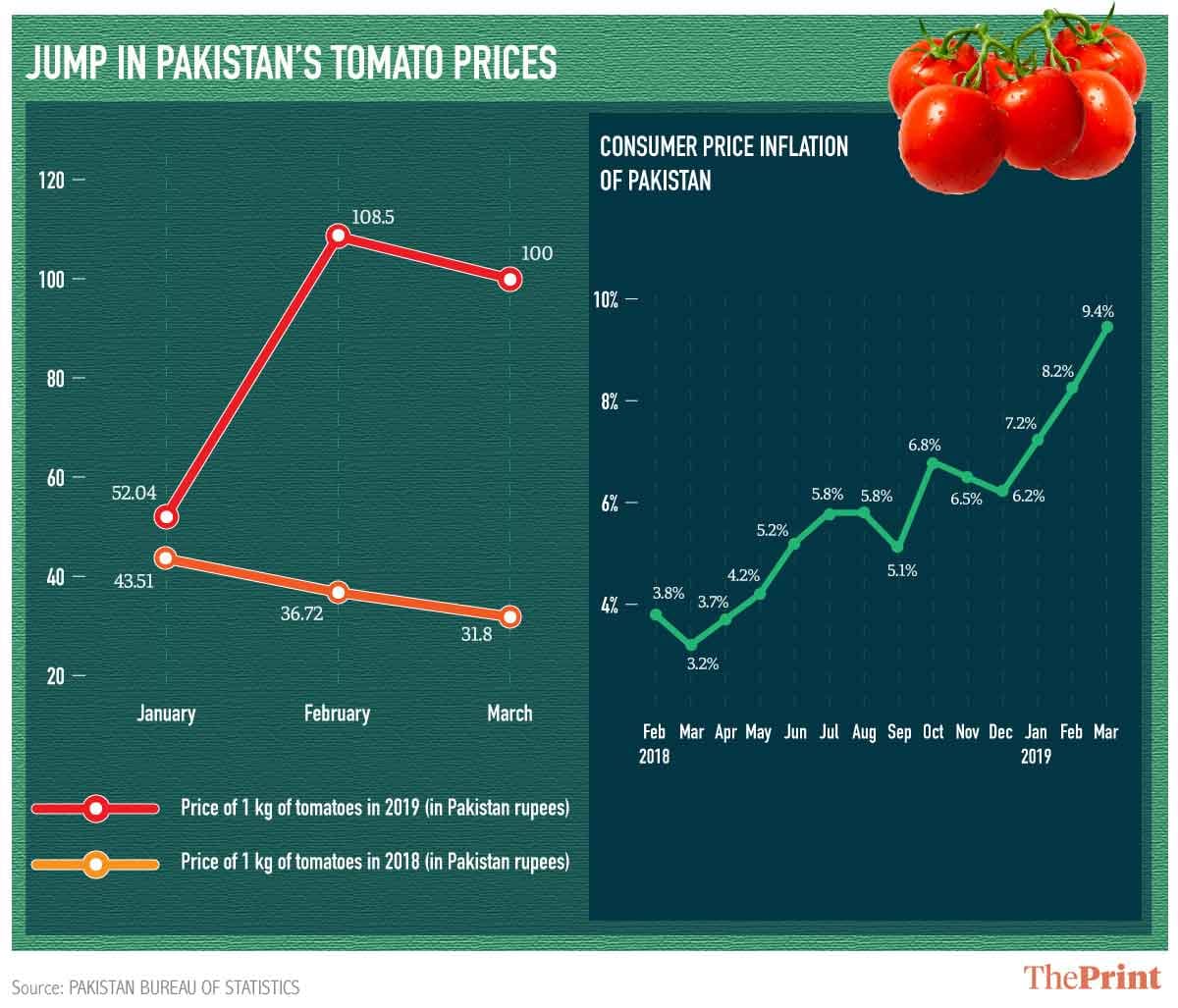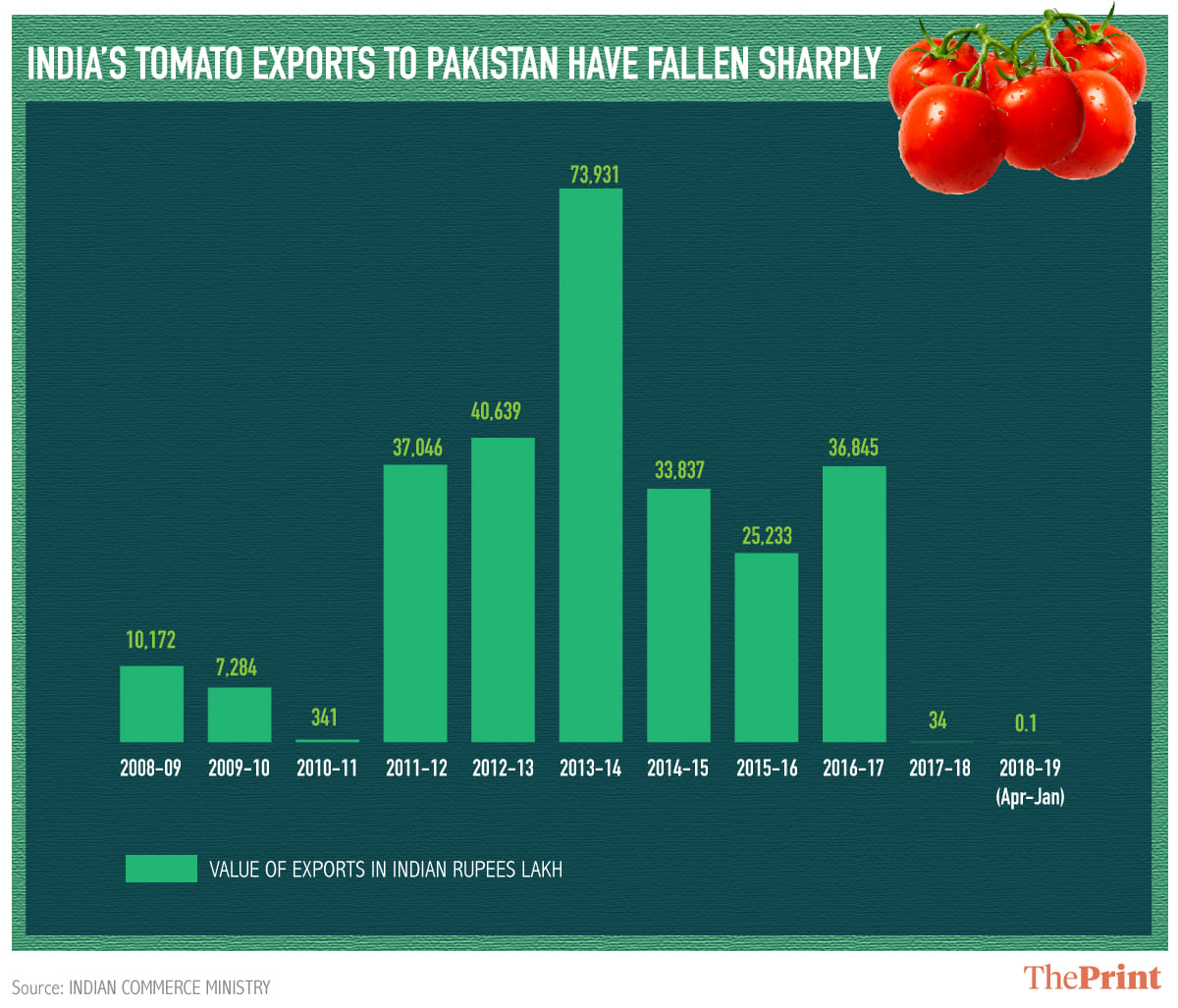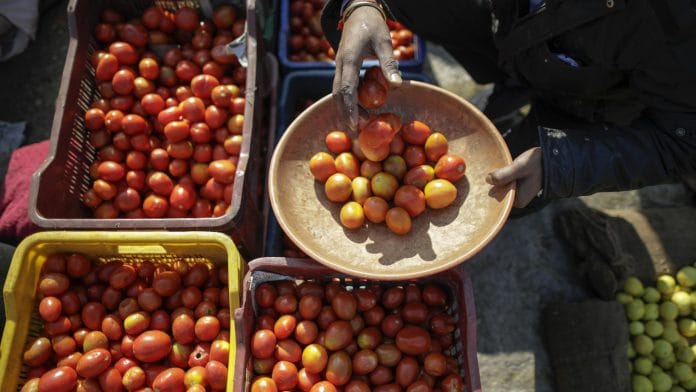New Delhi: Tensions with India are being severely felt in a very unlikely part of Pakistan — its kitchens. And the reason: Falling tomato imports from India that has sent prices of the staple rocketing up more than 200 per cent in March over a year ago.
This, after rising over 195 per cent in February, exacerbating the challenge facing the eight-month-old Imran Khan government as it struggles with a litany of economic challenges, including slowing growth.

While falling imports from India are a major factor, Pakistani economists said hoarding of tomatoes for Ramzan was also to blame. Ramzan, the Islamic month of fasting ahead of Eid, begins in the first week of May.
According to economists, Indian tomatoes, primarily transported via the Attari-Wagah border, eased supply shortages in some parts of Pakistan, mainly the Punjab province, for a few months every year until supplies from the Sindh province arrived.
Until 2016-17, Indian tomatoes comprised 84 per cent of the staple’s imports by Pakistan, with Afghanistan accounting for the remaining 16 per cent, according to data from the Pakistan Bureau of Statistics.
However, persistent tensions with India — beginning with the 2016 Uri attack by Pakistan-based terrorists and India’s subsequent surgical strikes — led Islamabad to stop issuing import permits for certain agricultural items from India, including tomatoes, in 2016.
This has seen India’s tomato exports to Pakistan fall from Rs 368 crore in 2016-17 to Rs 10,000 until January in 2018-19, according to the Indian Ministry of Commerce website.

Pakistan’s reliance on Afghan tomatoes has grown since, although the quantity has vastly shrunk — in 2017-18, Afghan tomatoes comprised 86 per cent of Pakistan’s tomato imports, which were altogether valued at Rs 302 crore (Pakistani rupee, approx. Rs 148 crore INR].
Nisha Taneja, professor at the Indian Council for Research on International Economic Relations, said tomatoes and soybean were some of the Indian exports that had been hit since Pakistan stopped issuing permits.
“Trade-restrictive measures have been taken by both sides over the last few years with rising tensions,” she added, noting, however, that this had not seen trade levels between the two countries go down dramatically.
Also read: Currency, forex, growth in free fall: Economy is Pakistan’s real crisis, IMF only saviour
Ashfaque Hasan Khan, a member of the economic advisory council (EAC) to the Pakistani Prime Minister, said the ‘border closure’ with India had led to temporary shortages, which were being reflected in domestic prices.
“We imported tomatoes from India to meet shortages till the local crops hit the market. But that is not happening anymore,” he said, also attributing the 200 per cent price increase for tomato in March to the fact that overall consumer inflation was nearing double digits.
Pakistan’s inflation based on the consumer price index rose to 9.4 per cent in March and 8.2 per cent in February this year, according to data from the Pakistan Bureau of Statistics.
The Ramzan factor
Abid Qaiyum Suleri, another member of the EAC, was reluctant to cite the lower Indian imports as a major factor, saying that they mainly served Punjab, and an increase in prices on account of this reason would have been restricted to those areas.
A break-up of the tomato inflation data showed that prices were indeed highest in areas of eastern Pakistan — closer to the Indian border — compared to other parts of the country.
“The increase in tomato prices is more to do with hoarding as traders are stocking up ahead of Ramzan, when the demand for tomatoes increases,” he added.
“Increasing diesel prices are also contributing to the price increases,” Suleri said.
Ashok Kaushik, president of the tomato trade association based at Azadpur mandi in New Delhi, said tomato trade with Pakistan had gone down sharply since the Uri attack.
“Tomato was a major item of export to Pakistan until a few years back but that is not the case now,” he added.
Also read: Israeli technology is helping grow more tomatoes in Tamil Nadu & mangoes in Maharashtra







Very good information… This may be a part of diplomacy the Indian govt playing with Pakistan to screw up ……